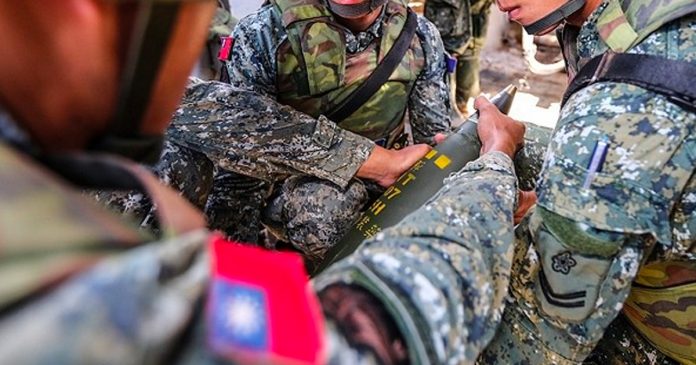China argues against Taiwan’s entry into the World Health Organization (WHO), claiming Taiwan lacks statehood and that Beijing represents Taiwanese people within the organization.
The problem is, Taiwan is a fully sovereign state, and China has never ruled Taiwan, nor tread its military boots within the country, and nor has it ever contributed to Taiwan’s healthcare needs.
Yet Beijing keeps on pressuring the world to believe that Taiwan belongs to China when, truth be told, it was once ruled by Japan.
In 2021, Taiwan was ranked the second-freest place in Asia, according to Freedom House.
It is a vibrant multi-party democracy, with peaceful transitions of power between ruling and opposition parties for the past two decades.
Not only that, but Taiwan is a leader in public civic participation through programs such as Citizen Congress Watch, a fourth-generation legislative oversight mechanism.
The organization gathers representative opinions, publicizes oversight outcomes, and puts forward suggestions to the legislature to effect changes the public wants to see.
Taiwan is emerging as an international leader in democracy, having recently hosted the 2021 Open Parliament Forum, an international gathering of parliamentarians and experts.
The forum is focused on protecting liberties and human rights in the face of rising threats of authoritarianism. Through its involvement, albeit as a non-member, Taiwan demonstrates its commitment to safeguarding civil liberties through transparency and openness of government, reinforcing the role of citizens and media in providing checks and balances to public policies.
Taiwan’s hard-earned democracy, having transitioned from authoritarianism to a vibrant democratic system, is constantly under siege from Beijing’s intimidation and coercion, which considers Taiwan part of its territory.
But in many ways, these challenges make Taiwan stronger by giving it a foil.
In a recent Foreign Affairs essay, Taiwan President Tsai Ing-wen makes the strong case that the island’s resiliency is critical to regional peace and the future of democracy.
The United States and its allies, Canada included, agree, and are coordinating their Taiwan policy to safeguard the rule-based international order.
As an op-ed by Director General Jin-Ling Chen at the Taipei Economic and Cultural Office in Toronto recently explained, “China’s recent military exercises against Taiwan following U.S. House Speaker Nancy Pelosi’s visit to Taiwan in August 2022 and President Tsai Ing-wen’s meeting with current U.S. House Speaker Kevin McCarthy in Los Angeles in April this year further refutes Beijing’s claim to represent and protect the interests of Taiwan’s people at the WHO.”
“It is absurd that a regime threatening the health and safety of Taiwan’s people claims to represent them in the organization,” Chen writes.
What is also absurd is China’s contention that its governance, like Taiwan’s, can be best described as a democracy when, as the world knows, it is an authoritatively communist dictatorship closely aligned with Vladimir Putin’s Russia.
As Chen contends, the exclusion of Taiwan from the WHO is not only wrong, but it also politicizes global health issues, which undermines the global response to public health crises.
Taiwan, according to the diplomat, “provides powerful lessons on democratic resilience, as in the future of democracy hinges on inclusive partnerships among like-minded democracies and stakeholders.”
”Taiwan provides valuable lessons in how to address challenges facing modern democracies while under constant threat,” she stressed.
“Taiwan is one of Canada’s fastest-growing trading partners,” writes Chen. “Millions of Taiwanese tourists travel to various destinations each year, promoting international trade, tourism and cultural exchange.
“These facts underline Taiwan’s significance as a global citizen and underscore the necessity of its inclusion in the WHO.”
